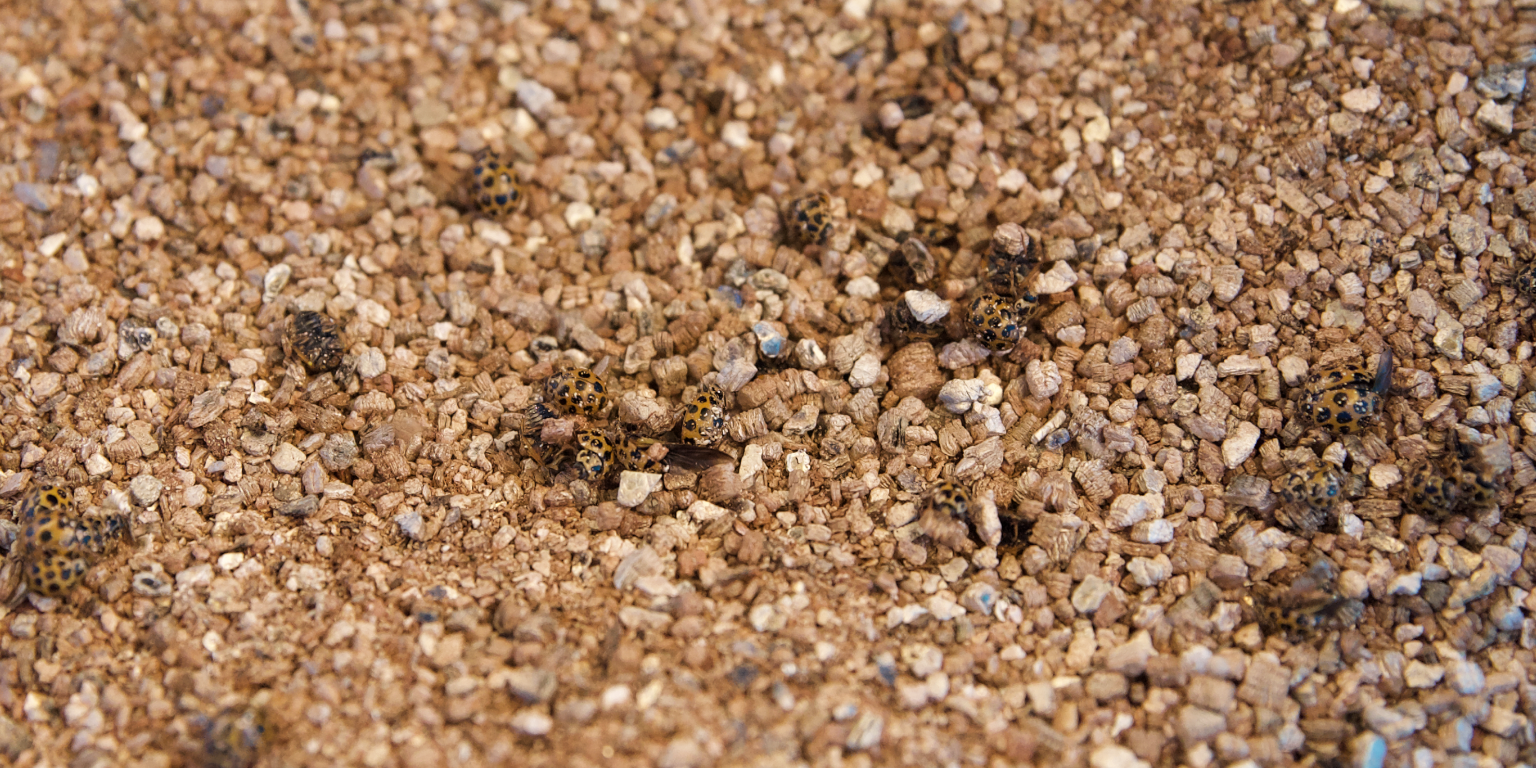Aimed at enhancing the sustainability and efficiency of organic farming practices, NQ Aerovation has embarked on an exciting trial involving the release of lady beetles, specifically Harmonia octomaculata, using a drone. This trial, conducted over a 1-hectare plot of organic sweet corn in its fourth leaf stage, sees the potential of using the DJI Agras T10 to manage pest control in agriculture.
NQ Aerovation’s experience using UAV’s to release beneficial insects
For the past five years, NQ Aerovation has been at the forefront of agricultural innovation, developing custom-built deployment devices for unmanned aerial vehicles (UAVs) to distribute beneficial insects such as mites and wasps across various crops. The primary advantage of using UAVs over traditional hand release methods lies in their ability to evenly distribute these beneficial insects throughout the entire crop. Faster and than hand release, this not only ensures more effective pest control but also enhances biosecurity by minimising the need for human traffic through sensitive crop areas.
The Trial: Releasing lady beetles with the DJI Agras T10
The latest trial involves the use of the DJI Agras T10, a drone known for its robust capabilities in agricultural applications. However, releasing delicate insects like lady beetles presents unique challenges. Unlike mites and wasps, lady beetles and other beneficials such as lacewings are more sensitive to handling and environmental stresses, which can adversely affect their survival rates.
To address this challenge, NQ Aerovation made strategic modifications to the Agras T10’s spreader. By removing any moving parts that might cause harm to the lady beetles, the team ensured that these beneficial insects could be deployed from the hopper alive and healthy.
During the trial, 1500 lady beetles were released across the designated plot. The aim was to assess not only the survival rate of the beetles post-release but also their effectiveness in controlling pests naturally in the organic sweet corn.
The advantages of drone release
The use of drones like the DJI Agras T10 offers several significant advantages over traditional methods:
- Efficiency: Drones can cover large areas quickly, drastically reducing the time required to release the beneficial insects.
- Precision: UAVs can be programmed to release insects at specific locations and altitudes, ensuring optimal distribution.
- Safety and Biosecurity: Drones minimise the need for human presence in the fields, reducing the risk of crop contamination and damage.
The challenges and future prospects
While the initial results of the trial are promising, with the lady beetiles being released in good condition, the ultimate test will be in their survival and pest control efficacy. The sensitivity of these insects to handling stresses remains a significant hurdle.
Looking ahead, NQ Aerovation plans to refine their technique further and expand the types of beneficial insects released via drones. The goal is to provide growers with a reliable, efficient, and sustainable method of pest control that can eventually be scaled up.
This trial not only underscores the potential of integrating advanced technologies like UAVs into farming practices but also highlights the ongoing commitment of companies like NQ Aerovation to sustainable agriculture innovation. As we continue to face global challenges in food production, such innovations are a beacon of hope for environmentally friendly and efficient agricultural solutions.
